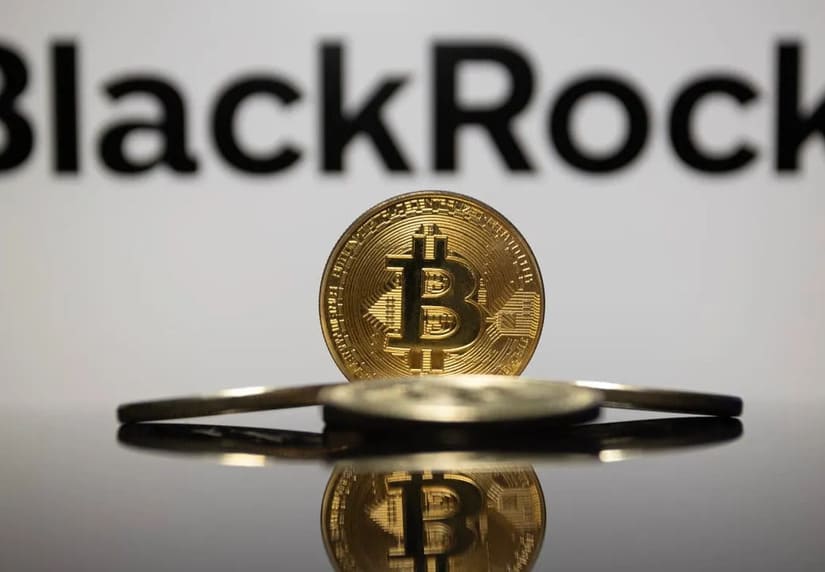TL;DR:
- BlackRock’s Bitcoin ETF reached $50 billion in its first year, but its adoption faces challenges due to Bitcoin’s correlation with the stock market.
- Institutional investors remain interested, with 1,100 holders, including the Mubadala sovereign fund, which invested $436 million.
- Bitcoin ETFs recorded their first week of net withdrawals, surpassing $585 million, amid uncertainty over the Federal Reserve’s monetary policy.
BlackRock’s Bitcoin ETF has been a resounding success since its launch, but it now faces obstacles that could slow its growth.
Although it managed to accumulate $50 billion in assets in its first year, surpassing other investment funds in growth speed, its adoption is at risk due to the relationship between Bitcoin and the stock market. When stocks fall, Bitcoin tends to follow the same pattern, making it difficult for the ETF to establish itself as a stable investment alternative.
$IBIT did reach $50b in first year (it took $VOO six years to hit that mark) so def one to watch but it would take a ton more adoption (flows) AND you probably need a break in correlation with stocks. But btc tends to go down (worse) when stocks decline, which will make it hard… https://t.co/CCud9vzomE
— Eric Balchunas (@EricBalchunas) February 18, 2025
Is Interest in Bitcoin ETFs Fading?
Despite these factors, institutional interest remains strong. Recent regulatory filings show that the ETF has added 1,100 institutional investors, an unprecedented figure for a fund in its first year. Among the most recent buyers is Abu Dhabi’s Mubadala sovereign fund, which allocated $436 million to ETF shares, positioning itself as the seventh-largest investor.
The Bitcoin ETF sector has grown exponentially in recent months. In the last quarter of 2024, assets under management in these funds tripled, reaching $38 billion. However, recent data shows a shift in trend. Last week, Bitcoin ETFs recorded their first net negative balance, with withdrawals exceeding $585 million. On February 18 alone, outflows reached $129 million, suggesting a slowdown in interest in these financial products.

Economic and Regulatory Uncertainty
The economic context is also an influential factor. The Federal Reserve’s monetary policy continues to create uncertainty. Recently, Jerome Powell ruled out the possibility of interest rate cuts in the short term, which could be prompting investors to take more conservative positions. Inflation remains a concern, and the lack of clear signals regarding economic policy adjustments adds pressure to financial markets, including the crypto market.
BlackRock’s ETF remains the leader in the sector, but its future performance will depend on multiple factors. The correlation between Bitcoin and stocks, the evolution of monetary policy, and market confidence in these instruments will determine whether the initial growth continues or if interest in these funds begins to fade.


